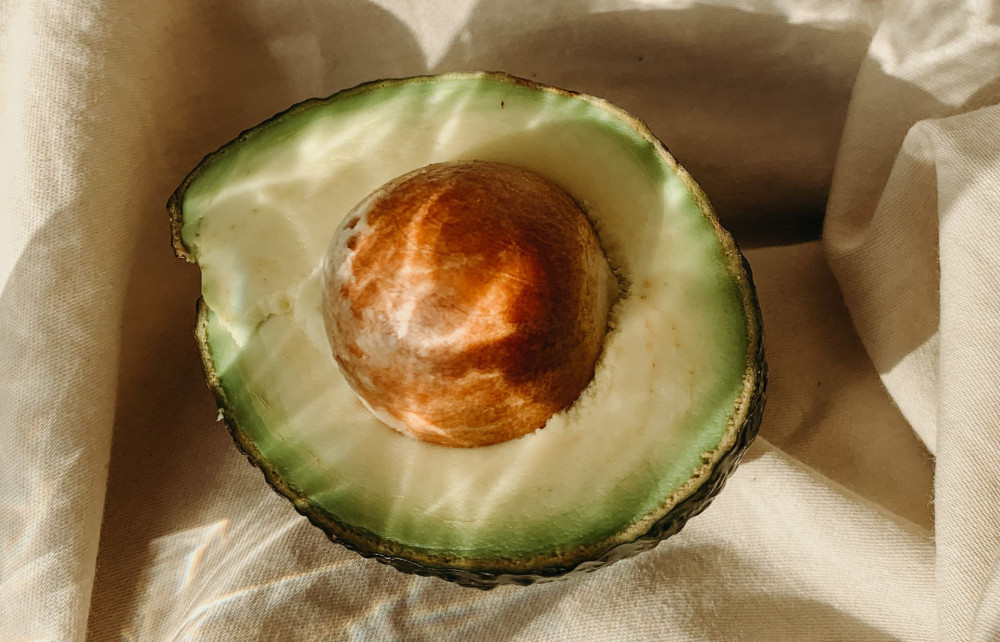
Everything about proteins, the building blocks for a healthy body
You probably know that proteins are an essential part of a healthy diet, but what else do you know about proteins? Admit it: actually not that much. Proteins are often associated with muscle building, but that is certainly not their only function. Proteins are therefore one of the most underestimated macronutrients.
But how important are proteins really? What other functions do they have? How much protein do you need to get in every day? What foods do contain a lot of protein? And do I get them from plant-based products or animal products? This article will answer all your questions about proteins and counter a lot of common misunderstandings about them. Bet you will learn something new?
We warm up with an etymological fact. Did you know that the word ‘protein’, the scientific name for a protein, originates from the Greek word proteios? That means as much as ‘primary’ or ‘first’. So the Ancient Greeks were well aware that proteins are the primary – and thus the most important – macronutrients for our body.
When we chemically decompose proteins, we see them as large, complex molecules. Those molecules play a crucial role in our health because proteins provide the structure, optimal function, and regulation of our tissues and organs.
Those large, complex protein molecules consist of thousands of smaller components: the amino acids. The sequence of the amino acids determines the structure of each protein and its specific function.
 Protein molecules consist of thousands of amino acids
Protein molecules consist of thousands of amino acids
Microscopic research discovered that proteins can contain up to 22 different amino acids. Of these, 8 are essential amino acids. That’s because those cannot be produced by our bodies. The only way to get an essential amino acid is through the diet. Eating the right proteins is therefore very important. But more on that later in this article.
The 3 main functions of proteins
First, we’ll take a closer look at why proteins are so crucial to us. However, a protein is (under normal circumstances) not an energy supplier for our body. Carbohydrates and fats, the two other macronutrients, are mainly responsible for this.
But what are proteins for? A protein can act as an antibody, enzyme, messenger, structural component, or transporter. That way, it can perform three very important functions in the body:
Detoxification
Detoxification is your body’s ability to successfully eliminate waste and toxins. The liver plays a crucial role in this process.
First, toxic chemicals and metals are converted by your liver into less harmful chemicals. In a second phase, those fat-soluble chemicals are transformed into water-soluble chemicals. That way they can be easily eliminated. This happens through sweat, urine, stools, and breathing.
In the second phase, the need for amino acids is particularly high. Without enough amino acids, detoxification will only be suboptimal. That is also the reason why so-called detox juices don’t work. After all, for optimal detoxification, you mainly need the right amino acids. You won’t find those in detox juices.
 The liver plays a crucial role in detoxification
The liver plays a crucial role in detoxification
Optimal nerve and brain function
Our brain also has a big need for amino acids and therefore proteins. After all, they are very important for optimizing brain functions. To function optimally, your central nervous system needs several amino acids that you can only get from protein-rich food. Amino acids such as tryptophan, tyrosine, histidine, and arginine are used by our brains for the production of various neurotransmitters and neuromodulators.
And why are those neurotransmitters so important? These are the information transporters of our body. Neurotransmitters are biochemical compounds that transfer information from neuron to neuron. Thanks to this information, almost all processes in our bodies are regulated. Consider, for example, the control of our cognitive functions, the degree to which we can absorb knowledge and process information.
Dopamine, acetylcholine, gamma-aminobutyric acid, and serotonin are the four main neurotransmitters in our body, each with its specific function:
- Dopamine: increases drive and motivation
- Acetylcholine: stimulates cognitive processing speed
- Gamma-Aminobutyric Acid (GABA): calms the peripheral nervous system
- Serotonin: calms the central nervous system
Dopamine and acetylcholine drive the body and therefore represent energy. Gamma-aminobutyric acid and serotonin calm you down and thus ensure relaxation. These four neurotransmitters are therefore responsible for the balance in our body.
 Neurotransmitters transmit information from neuron to neuron
Neurotransmitters transmit information from neuron to neuron
Good immune function
Proteins also play an important role in our resilience and immunity. After all, proteins are essential for building and repairing body tissues. Also, they are essential to successfully fight viral and bacterial infections.
It should come as no surprise, then, that the central components of the immune system, such as antibodies and immune cells, rely on proteins. Are you consuming too little protein? Then you can suffer from symptoms such as weakness, fatigue, apathy, and poor general immunity.
 Proteins play a crucial role for our immune function
Proteins play a crucial role for our immune function
How many proteins are needed daily?
The general guideline puts the recommended daily allowance at 0.8 grams of protein per kilogram of body weight per day. Do you weigh 70 kilograms? Then you must consume 56 grams of protein per day according to this guideline.
In practice, however, this guideline is not very useful. After all, 0.8 grams per day is the number of proteins you should consume in order not to get sick, not for optimal health.
Especially as you get older, it is important to systematically increase protein intake. With age, muscle mass and strength decrease, which is strongly correlated with chronic diseases such as cardiovascular disease, stroke, hypertension, insulin resistance, and type 2 diabetes.
These diseases, in turn, accelerate protein breakdown and reduce the ability to build skeletal muscle. That way you may be ending up in a dangerous, vicious circle.
The importance of adequate protein intake cannot, therefore, be emphasized enough. 1.2 grams of protein per kilogram of body weight is the target number for a healthy adult. Do you want to lose weight or build muscle as a healthy adult? Then increase the intake to 1.6 or even 1.8 grams.
The recommended amount can be even higher for people who are very active in sports, for example, people who are trying to lose weight with a diet that is low in carbohydrates or for those who mainly focus on muscle building – through extra (strength) training for example. An intake of up to 3 grams of protein can even be useful in certain such cases.
Especially after a heavy training session, extra protein consumption can be induced. That is why at Omnia we offer our customers free protein supplements with essential amino acids in the form of protein shakes after a training session.
Do I opt for plant-based proteins or animal proteins?
Now that you are convinced of the importance of consuming enough protein, you may wonder which foods contain the most protein … You have probably heard of the choice between two protein sources: animal and vegetable sources.
What’s the best now? Animal proteins from meat, fish, and products such as milk? Or more plant-based alternatives? Well, here’s the thing…
When we have to choose the best proteins, it is mainly a choice in protein quality. The quality can be evaluated in function of the amino acid profile and bioavailability. By this we mean: how easy can the protein be digested, absorbed, and used?
Scientists even developed a scale for assessing proteins based on those values. The higher protein scores on the so-called Protein Digestibility Corrected Amino Acid Score (PDCAAS), the better.
When we take a closer look at that scale, we see that eggs (1.13) and beef (1.10) score very well. Peanut butter (0.46) is an example of a food that scores very low. Oats (0.43) also dangle at the bottom. Other frequently occurring vegetable proteins such as red lentils (0.54), chickpeas (0.52), and kidney beans (0.55) score clearly lower than animal alternatives.
This research and the accompanying scale, therefore, prove that animal proteins are of higher quality than vegetable protein sources.
Animal proteins are therefore superior to vegetable protein sources, but why is that? There are four clear reasons for this. Animal proteins…
- score higher in terms of bioavailability.
- are richer in other nutrients and vitamins. They contain vitamin B12, iron zinc, beta-alanine…
- naturally contain more essential amino acids, the amino acids that we can only get through our nutrition.
- are richer in higher amounts of sulfur-containing amino acids. Those amino acids are crucial to many aspects of our physiological functioning.
 Animal proteins are mostly from excellent quality
Animal proteins are mostly from excellent quality
So at Omnia, we advise our customers to get the main amount of protein from animal protein sources. After all, that is the most efficient way to get the proteins and essential amino acids you so desperately need into your body.
But beware! This doesn’t mean that we are against it if you prefer vegetarian or vegan food for other reasons. At Omnia, we naturally respect those kinds of personal choices and we also offer you all the necessary support to achieve your goals with such a diet.
Which products contain a lot of proteins and amino acids?
Whether we can give examples of a specific product that contains a lot of proteins? Sure! To conclude, we provide you with a list of protein sources with an animal and vegetable origin.
 An example of great protein sources
An example of great protein sources
Examples of animal protein sources
- Eggs, preferably of organic origin
- Meat, preferably grass-fed (veal, beef, and lamb)
- Poultry (chicken, turkey, duck…)
- Game meat (deer, wild boar, rabbit, bison…)
- Fish (herring, mackerel, salmon, anchovies, sardines …)
- Dairy (yogurt, cottage cheese …)
Examples of vegetable protein sources
- Tofu
- Tempeh
- Soybeans
- Chickpeas
- Lentils
- Beans (just about all types of beans contain proteins)
- Nuts (walnuts, almonds, pistachio, cashew …)


Saturated fat vs unsaturated fat: All you need to know about fats

